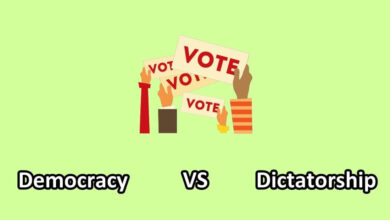Understanding the distinction between transaction and transfer is pivotal in navigating various aspects of our lives, especially in finance and technology. Transactions and transfers though often used interchangeably, carry nuanced differences that can significantly impact decision-making.
In this blog, I will delve into these disparities, providing clarity on their meanings and exploring their applications in different contexts.
Transaction Vs Transfer (A Comparison)
| Transaction | Transfer |
|---|---|
| A transaction is a formal interaction or exchange between two or more parties, typically involving the buying or selling of goods, services, or financial instruments. | Transfer refers to the movement or conveyance of something from one place, person, or situation to another. |
| Transaction involves mutual give-and-take of goods, services, or information, with an expectation of receiving something of value in return. | Transfer involves the relocation of assets, rights, or information, not necessarily requiring a direct exchange but indicating a change in ownership or possession. |
| It is typically a discrete and temporary event; that concludes once the exchange is completed. | It can imply a more enduring change, such as the transfer of ownership or rights, suggesting a lasting alteration in status. |
| The transaction requires active participation from all parties involved; each plays a role in the exchange. | In some cases, a transfer might occur without the immediate involvement or awareness of one party, such as a data transfer between servers. |
| Transaction primarily involves the exchange of assets like money, goods, or services, focusing on the value being traded. | Transfer encompasses a broader spectrum, including the movement of rights, responsibilities, or information, extending beyond traditional tangible assets. |
What is Transaction
A transaction, in its essence, refers to the exchange or interaction between parties involving goods, services, or information. It is a fundamental concept in various fields, from finance to daily commerce.
Transactions serve as the backbone of economic activities, embodying the give-and-take inherent in societal exchanges.
Types of Transactions
Transactions manifest in diverse forms, each tailored to the context in which they occur.
- Financial transactions involve the transfer of monetary value.
- Business transactions encapsulate the exchange of goods and services between companies.
Other types include electronic transactions, where data is exchanged digitally, and personal transactions that occur in our day-to-day lives.
What is Transfer
In contrast to transactions, transfers involve the relocation of assets, information, or rights from one entity to another. This movement can occur within various spheres, such as finance, technology, and communication.
Transfers represent a change in ownership or possession, highlighting the dynamic nature of the entities involved.
Types of Transfers
Transfers span a broad spectrum, ranging from monetary exchanges to the seamless transfer of data.
- Money transfers denote the movement of funds between individuals or entities, emphasizing financial transactions.
- Data transfers, on the other hand, pertain to the exchange of information, critical in our interconnected digital age.
Key Differences Between Transaction and Transfer
Permanence of Interaction:
- Transaction: Transactions are typically discrete and temporary events. Once the exchange is completed, the transaction concludes, and the parties involved may not have an ongoing relationship. It is a point-in-time occurrence.
- Transfer: Transfers, in contrast, can imply a more enduring change. For example, the transfer of ownership of a property or the transfer of intellectual property rights suggests a more lasting alteration in status.
Involvement of Parties:
- Transaction: Transactions inherently involve active participation from all parties concerned. Each party plays a role in the exchange, contributing to the completion of the transaction.
- Transfer: In some cases, a transfer might occur without the immediate involvement or awareness of one party. For instance, the transfer of data between servers may happen without the explicit involvement of end-users.
Type of Assets Involved:
- Transaction: Transactions often involve the exchange of assets such as money, goods, or services. The focus is on the value being traded between the parties.
- Transfer: Transfers encompass a broader spectrum, including the movement of rights, responsibilities, or information. This can range from the transfer of ownership in financial transactions to the transfer of data in technological contexts.
Importance in Finance
Transaction in Financial Terms
Financial transactions form the lifeblood of economic systems, encompassing a wide array of activities. Understanding how financial transactions work is paramount, involving intricate processes that impact individuals, businesses, and economies at large.
Accuracy in financial transactions is crucial, as discrepancies can lead to financial instability and mistrust.
Transfer in Financial Terms
Transfers within financial systems play a pivotal role, in influencing liquidity, investments, and overall market dynamics. Examining the role of transfers in financial processes unveils their significance in shaping the flow of capital and the stability of financial institutions.
The impact of transfers on financial systems extends beyond individual transactions, contributing to the broader economic landscape.
Technology and Transactions
Digital Transactions
The digital era has ushered in a new paradigm of transactions, characterized by speed, efficiency, and convenience. Digital transactions leverage technology to facilitate seamless exchanges, transforming traditional processes.
An overview of digital transactions unveils their transformative power, highlighting the role of technology in shaping modern commerce.
Data transfers
In the digital age, the significance of secure data transfers cannot be overstated. As information becomes a valuable currency, ensuring the integrity and confidentiality of data transfers is paramount.
Exploring the intricacies of data transfers sheds light on their role in sustaining the interconnected fabric of our technological landscape.
Considerations for Consumers
A. Factors to Consider in Transactions
Consumers navigating transactions must weigh factors such as transaction costs and speed. Understanding the financial implications and ensuring efficiency is pivotal to making informed choices in personal and business dealings.
B. Factors to Consider in Transfers
When engaging in transfers, consumers should be mindful of transfer fees, security, and reliability. These considerations ensure that the movement of assets or information aligns with their objectives, mitigating potential risks.
Conclusion
In conclusion, unraveling the distinctions between transactions and transfers provides a comprehensive understanding of these fundamental concepts. From financial implications to technological advancements, the knowledge gained empowers individuals to navigate an increasingly complex world with confidence.
The significance of this understanding cannot be overstated, as it forms the basis for sound decision-making in financial and technological realms. By grasping the nuances, individuals can optimize their interactions, fostering trust and efficiency in their transactions and transfers.
I encourage readers to leverage this newfound knowledge, making informed decisions in their financial transactions, technological interactions, and everyday exchanges.
The ability to discern between transactions and transfers equips individuals with a valuable tool for navigating the intricacies of our interconnected world.



